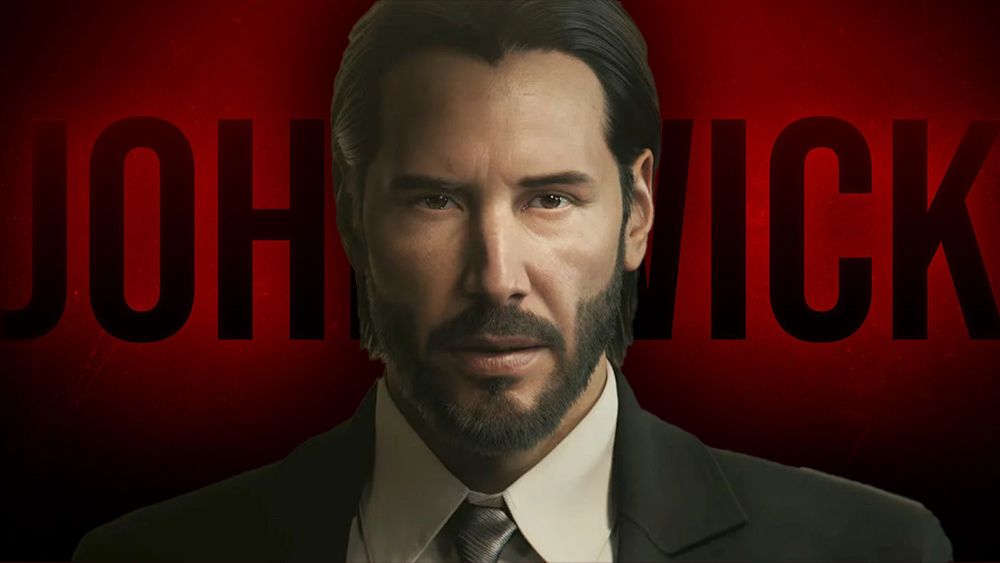Big question: what do you love and hate about Facebook?
Facebook inspires strong emotions in many of us, so we asked our experts to tell us what they find most delightful and most despicable about the social networking giant
Sign up to Creative Bloq's daily newsletter, which brings you the latest news and inspiration from the worlds of art, design and technology.
You are now subscribed
Your newsletter sign-up was successful
Want to add more newsletters?

Five times a week
CreativeBloq
Sign up to Creative Bloq's daily newsletter, which brings you the latest news and inspiration from the worlds of art, design and technology.

Once a week
By Design
Sign up to Creative Bloq's daily newsletter, which brings you the latest news and inspiration from the worlds of art, design and technology.

Once a week
State of the Art
Sign up to Creative Bloq's daily newsletter, which brings you the latest news and inspiration from the worlds of art, design and technology.

Seasonal (around events)
Brand Impact Awards
Sign up to Creative Bloq's daily newsletter, which brings you the latest news and inspiration from the worlds of art, design and technology.

Leisa Reichelt
disambiguity.com
While there is plenty that’s troubling about Facebook, there is one thing I love about it that’s distinct from Twitter or G+ or any other social network. Facebook is the place that friends and family who are not so tech-savvy connect online and share little pieces of their lives.
Given that I live in a different country to most of my family and old school friends, I’m glad there’s a place they feel comfortable to share little pieces of their life with me, even if it’s Facebook.
Leisa is a freelance user experience consultant

Whitney Hess
whitneyhess.com
I love that Facebook allows people to capture and share their daily lives, but I hate that Facebook thinks they own our lives.
Whitney is an independent user experience designer
Sign up to Creative Bloq's daily newsletter, which brings you the latest news and inspiration from the worlds of art, design and technology.
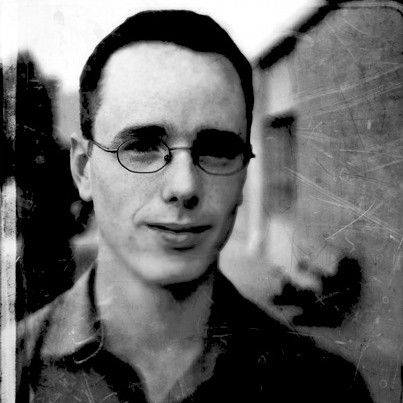
Patrick McNeil
www.designmeltdown.com
What I hate about Facebook is simple; it’s completely counterintuitive. I don’t happen to use it very much, so I have not been trained to accept the way things work on the site. As a result I am frustrated every time I do try to use it. In contrast, I log into many other new web applications, even some of the most complex ones, and manage to quickly find my way. It is clear to me that the site is painfully structured.
Patrick is the author of The Web Designer’s Idea Book
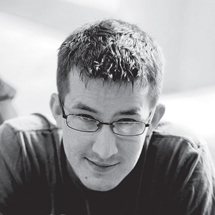
Jonathan Smiley
zurb.com
There’s plenty to like about Facebook, but here’s what I hate: because of the simplistic way Facebook positions ‘friends’ we aren’t connected to the people we really want to talk to – we’re connected to everyone we know. Maybe it’s my problem with how I use it, but by obfuscating the ability to tailor who I share with the level of dialogue, it tends toward the lowest common denominator.
Jonathan is a design lead at ZURB
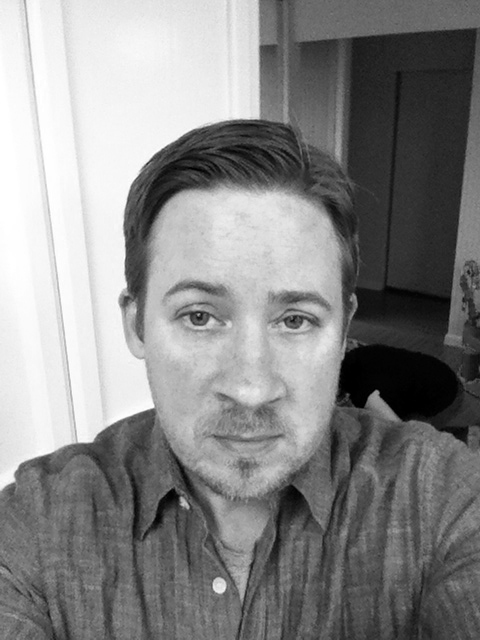
Mike Buzzard
www.cubancouncil.com
What I love about Facebook is also what I hate about Facebook: that it inspires.
From the perspective of a service provider, I love that clients get excited about elegant functionality, design patterns, features and content that they are first introduced to via Facebook, but when those clients then come to us asking “Can we do [whatever content/feature] like Facebook?”, it’s tough to respond realistically.
The reality is that Facebook has buildings full of product managers, engineers, designers and so on that are all essentially working nonstop on one website, whereas the client typically has a limited budget, timeframe and pool of resources to draw from. This doesn’t mean that we cannot act on the inspirations sparked by Facebook, but it’s frustrating when you have to reduce client expectations based on certain practicalities of implementation.
Mike is a partner member of Cuban Council

Inayaili de Leon
canonical.com
I’m not a regular user, but as a designer and frontend developer, I find it useful to look at how Facebook does things.
I have to confess I have spent quite a lot of time looking into its markup to see how some problems are (or are not) solved in CSS; where they using sprites and how they design them; how they trying to make their code more efficient and so on.
Inayaili is a web designer at Canonical
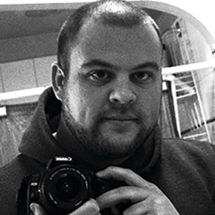
Chris Coyier
chriscoyier.net
There is a lot to love about Facebook. I have an account that I keep to exclusively family and friends-I’ve-met-in-real-life. It’s fantastic for keeping in touch with these folks. Honestly, I like hearing about the minutia of their lives (when I’m in the mood). It’s like an even more intimate version of ‘catching up’.
From a web development perspective, they do great work as well. Their site is absolutely huge, yet is almost never down and always quick. They seem to iterate quickly despite having a huge team. They hire smart people and make good acquisitions. They design things that other designers copy. Pretty impressive.
Chris is a web designer working at Wufoo

Lorna Mitchell
www.lornajane.net
Facebook reinvented “email” (didn’t we solve this already?) into a duplicate, proprietary system that seems to force people to “reply all”. Someone please make it stop.
Lorna is a freelance software consultant

Paul Lloyd
clearleft.com
Facebook states that its mission is to make the world a more open and connected place, yet this isn’t the exclusive domain of Facebook but a consequence of the open network it’s built on – the web. While social networks have of course made it easier for people to communicate online, Facebook is attempting to deeply integrate its closed, proprietary network into the fabric of the web. Connect, Social Plug-ins, OpenGraph, call it what you will, Facebook is a parasite, slowly suffocating the platform that hosts it. History dictates that monopolies – regardless of their size – ultimately collapse. Will Facebook become ‘too big to fail’? Will its demise bring the web down with it?
My dislike of Facebook doesn’t come from the perspective of having never used it. I joined the site relatively early in 2006. Over time, I found it became less valuable; a utility for procrastination. As the company sought rapid growth, its design moved away from encouraging users to create close personal networks towards openly sharing every aspect of their lives, with everybody and often unknowingly. The introduction of Beacon – where your activity on third-party sites could be tracked by Facebook – was a step in the wrong direction. This is a direction Facebook has aggressively pursued since, regardless of any pushback from members. I lost trust in the service, and deleted my account (it’s easier to do than many think).
Facebook has a culture of arrogance. It prides itself on its ‘move fast and break things’ attitude, but this is grossly inappropriate for organisation entrusted with the personal and private data of over 800million people. Mark Zuckerberg has strong views on privacy, and he’s forcing these onto members of his network; regardless of their own views, and often through questionable – possibly deceptive – design choices.
Now Facebook is hoovering up many of the best designers in our industry. As new features continue to encourage users to hand over more personal information, its designers have become Devil’s advocates. Much like producing advertising campaigns for cigarette companies, I believe working for Facebook has become an ethically questionable career move.
As more services require a Facebook account to use them, I wonder if it’s set to become the next Microsoft Windows; a popular piece of software that soon becomes the only choice available. Users of Windows eventually became pray to viruses and malware; will members of Facebook become equally vulnerable?
Paul is a designer at Clearleft

Trent Walton
paravelinc.com
The things I do and don’t like about Facebook are essentially the same. They’ve been acquiring lots of design and development talent who have been doing great work, most recently Gowalla. While I’m happy for those who move on to bigger and better things, I’m also sad to see them leave their work behind. I just hope Facebook utilises those talents to the fullest.
Trent is founder of Paravel
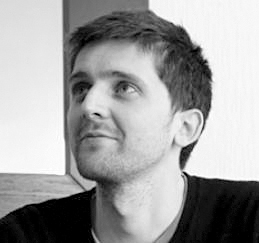
Rob Mills
bluegg.co.uk
I’ve been anti-Facebook for a while but this week I accessed the new timeline and I’m suitably impressed. I like the move Facebook have made towards storytelling and I much prefer the way content is displayed on the timeline. I find it easier to interact and more personal to me with features like the cover image. I think this is a step in the right direction for Facebook.
Rob is studio manager for creative agency Bluegg
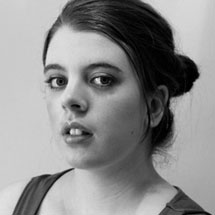
Rachel Shillcock
www.rachilli.co.uk
What I really hate about Facebook are the ever-changing privacy settings. To me, Facebook is a place where I keep in touch with my closest friends and family – and if it wasn’t for the fact it helped me keep in touch with family halfway around the world, it would have been deactivated a long time ago. The change that annoyed me most related to the image and profile privacy settings – I remember having to go in and set up new settings for each area I wanted to keep private. In my opinion, it isn’t for Facebook to decide that everything should be open – I think it should be the other way around and we have to opt-in, rather than opt-out. Luckily, I think that Facebook are moving in the right direction now. Although we can now post public posts if we want to, it’s easy to keep track of and simple to use and change if we so decide.
Rachel Shillcock is a freelance web designer

Anna Dahlstrom
annadahlstrom.com
Say what you will about Facebook but no other social service has had as great an impact on our online presence as Facebook. It’s changed our behaviour from how we communicate and behave online to ‘like’ and ‘liking something’ now being a global thumbs-up term understood by the many. But the most important aspect is how it’s connected us. Every day more than 400million active users log on to check what their friends have been up to. As someone who’s lived abroad for nearly 12 years, having a service like Facebook where you can effortlessly keep in touch and stay up to date with what your friends back home are doing is invaluable.
Facebook has given each one of us a voice and online presence and from its existence others have been inspired and created services such as Twitter. These are services we might not have seen, at least not as soon, had it not been for Facebook. It’s had a ripple effect and turned the web social.
However, there are a number of aspects around Facebook that I don’t agree with. Privacy issues and the platform’s attempt to be the destination for a lot more than the core idea are among some of them. The ability to connect with people across cities and borders is invaluable but with Facebook we also got our first taste of what too much information really can mean.
In the beginning we added old acquaintances and friends but their updates weren’t always to our interest and a need to hide updates or remove friends altogether arose as a means to deal with newsfeed “spam”. But there is another side to the newsfeed. As much as Facebook has given each one of us a voice and a presence it’s also contributed to ‘life envy’. We log on to see what our friends have been up to, what interesting things have happened in their lives. It’s a fix that we’re after a couple of times a day. Most of us have found ourselves looking through photos from near and dear but also complete strangers. Never before have we known as much about people, both things we want to know and the updates we would prefer not to have seen.
Facebook gives us a peak into the lives of others and with that comes a level of unintentional and unwanted comparison. An aspect that has contributed to unhappiness and pressure among some of its users, making them feel that their lives are less than that of some of their friends.
Anna is a freelance user experience designer

Elliot Jay Stocks
elliotjaystocks.com
It feels like just about everyone is getting acquired or recruited by Facebook these days.
Of course, you can’t blame Facebook. What company in the world would not want to have talented folks working for them, making their products better? The team from Made By Sofa have already done a sterling job on the Facebook iOS app. But at what cost? In Gowalla’s case, the service is being shut down. That product that was worked on for years, built by the passion of several individuals. Now it’s gone, as is so often the case in talent-only acquisitions.
Something about this feels inherently wrong to me. There’s no doubt that Facebook is doing some cool stuff and that its talent acquisitions have already paid huge dividends, but I can’t help but feel that Facebook is building its own web: a walled garden where all internet activity happens inside Facebook. Compare this to Google and you can’t help but feel that at least the latter gives back to the web. Google might be huge and a very big player in the space, but its products are part of the wider, open web; Facebook’s are only a part of its own all-encompassing world.
Elliot is a designer and illustrator

The Creative Bloq team is made up of a group of art and design enthusiasts, and has changed and evolved since Creative Bloq began back in 2012. The current website team consists of eight full-time members of staff: Editor Georgia Coggan, Deputy Editor Rosie Hilder, Ecommerce Editor Beren Neale, Senior News Editor Daniel Piper, Editor, Digital Art and 3D Ian Dean, Tech Reviews Editor Erlingur Einarsson, Ecommerce Writer Beth Nicholls and Staff Writer Natalie Fear, as well as a roster of freelancers from around the world. The ImagineFX magazine team also pitch in, ensuring that content from leading digital art publication ImagineFX is represented on Creative Bloq.
